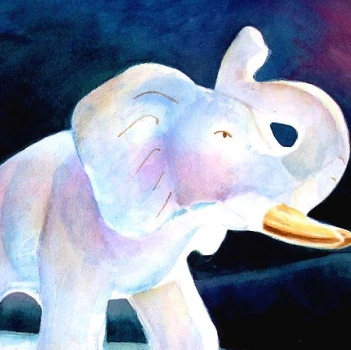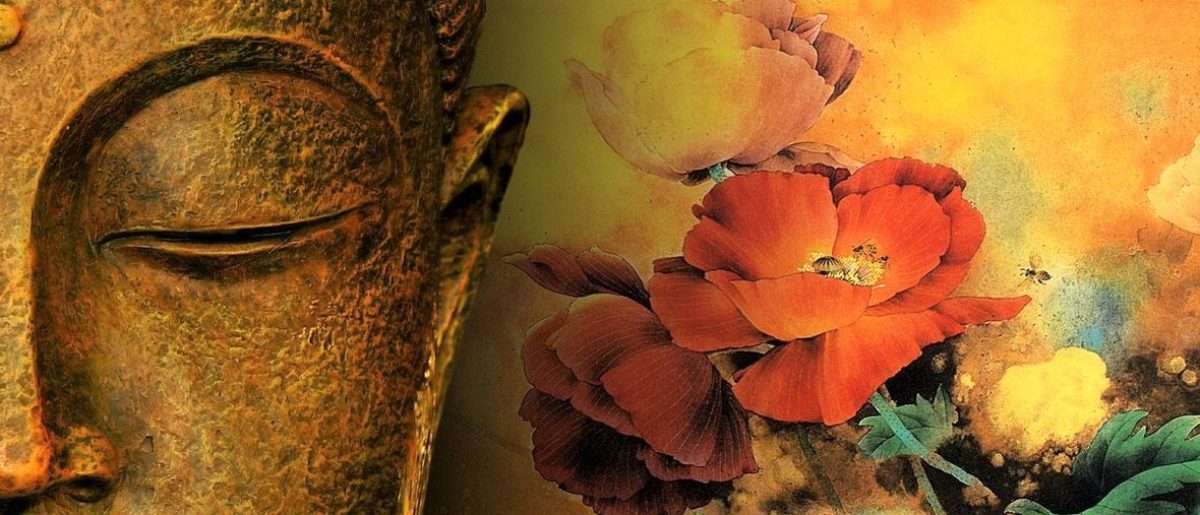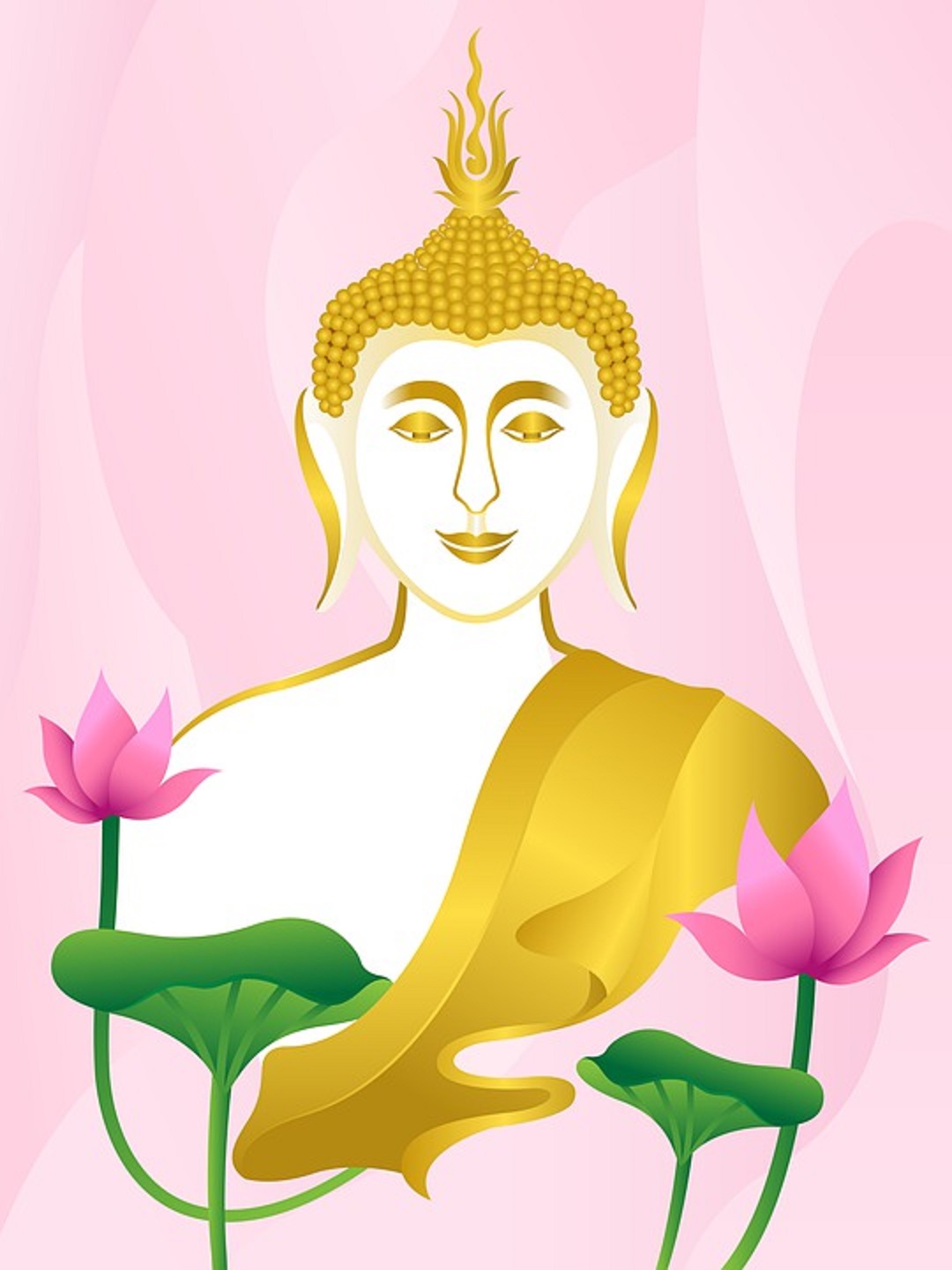Thus have I heard, at one time the Buddha was staying in Jetavana in the Garden of the Elder Anathapindika, the reliever of the orphans and loners at Savatthi. At that time the Elder Anathapindaka arranged a marriage for his son with the daughter of a rich elder. The lady was extremely beautiful and very arrogant. She did not conduct herself the right way as a daughter in-laws and she disobeyed her husband. The Elder discussed with the family on how to subdue this lady. He was looking for ways and means to teach her a lesson. He felt it is not right to beat her up with a stick. But if she was not taught properly her sins would increase tremendously as days pass by. He felt that only the Buddha, the Great Sage had the ability to teach her a lesson. He ordered to prepare the vegetarian food and invited the Buddha to receive the offerings the next day. The Buddha accepted the invitation and he came with his disciples. The whole family of The Elder Anathapindaka came out to welcome the Buddha, to make obeisance to Him, except Yu Ye. She refused to come out and hid herself in the room. The Buddha emitted a great bright illumination of golden light with purple hue and shone on Yu Ye’s room. The Buddha revealed the 32 Hallmarks and the 80 subtle adornments. On seeing the Buddha’s light and the adorned countenance, Yu Ye was most surprised and shocked. Fearfully she came out from her hiding place and bowed to the Buddha.
The Buddha told Yu Ye, ‘A woman should not rely on her beauty and feel proud about oneself. With your beautiful face and form features this is still not known as properly adorned. Only when you mind and conduct are proper and upright, that people are respectful towards you when they see you, this is known as genuine beauty. You should not become so arrogant just because you are more beautiful than others. Later people will look down on you, forcing you to do this and that.’
The Buddha told Yu Ye, ‘There are three obstructions and ten evil that a woman does not realize. What are the three obstructions? Firstly, she is not valued by her parents. Secondly, she is not valued by the husband’s family when they are married. Thirdly, she is not valued by her sons when she is old.
What are the ten evils?
1. Her parents are not very happy when she is born.
2. She is not well taken care of and nurtured properly by her parents.
3. Her parents are always worried about her marriage.
4. Wherever she goes she is always frightened.
5. She will finally leave her parents.
6. She has to rely on another family.
7. It is a suffering to carry a baby.
8. It is a disaster when she gives birth.
9. She is always afraid of her husband.
10. Her mind is always not at ease.
On hearing the Buddha’s teaching on the three obstructions and ten evils, Yu Ye was very shocked and she trembled listening to these words. She pleaded to the Buddha, ‘May the Buddha teach me the dharma on how to be a good wife.’
The Buddha told Yu Ye, ‘There are five types of wives. 1. A wife who is like a mother. 2. A wife who acts like a minister. 3. A wife who is like a sister. 4. A wife who acts like a maid. 5. A wife who is like a wife.
What is meant by a wife who resembles a mother? She cares for her husband just as though he is her son.
What is meant by a wife who resembles a minister? She takes care of her husband just as though he is a King.
What is meant by a wife who resembles a sister? She treats her husband like her own brother.
What is meant by a wife who resembles a maid? She treats her husband just as though she is like a concubine.
What is meant by a wife who resembles a wife? She leaves her own families forever and goes forth to the new family. She is very loving towards her husband, shares the same thinking and views and acts in accord with what he desires, just as though they are one, only different in body. She is very cautious in serving the husband, conducting in a respectful manner, with no trace of arrogance. She is good at carrying out the duties in the household chores and external affairs. She takes good care of the family’s wealth and entertains the guests and relatives with a loving nature that she was praised by them whenever they think about her. This is known as a good wife for a husband.’
The Buddha told Yu Ye, ‘There are five goodness and three evils in taking care of the in-laws and husband.’
Yu Ye asked, ‘What are five wholesomeness and what are the three evils?’
The Buddha answered, ‘1. She sleeps late and she wakes up early to take care of the household affairs. She will not taste all the good food as she will first serve them to her husband and in-laws. 2. She takes good care of the things in the family so that they are not lost or misused. 3. She speaks carefully with patience and she seldom gets angry. 4. She takes good care of her conduct, behaves in an adorned, modest and careful manner so that no critics will come upon her. 5 She is filial to the in-laws and shows great respect for husband so that their names are not tainted. All the relatives and friends like and praise her. These are the five good qualities of a good wife.
What are the three evils? She sleeps early when it is not the time to sleep and when the sun rises she is still sleeping. 2. She eats all the delicacies and the tasteless food are left to her husband and in-laws. She is cunning, playful, a bully and a cheater who directs her thoughts to all kinds of evils. 3. She does not take care of the daily chores. Instead she roams freely to other places to gossips on the right and wrongs of other people. She creates all kinds of arguments and her friends and relatives are angry on seeing her. They have no respect for her.’
On hearing the Buddha’s teaching on the five wholesomeness and the three evils, Yu Ye gave rise to true faith and respect. She was very glad to hear the teaching and she was most regretful of her past misconduct. She said to the Buddha, ‘Your disciple is most deluded before seeing the Buddha, before hearing the Dharma. I have committed all kinds of sinful acts and created all kinds of hindrances without knowing it. Now that I have listened to the Buddha’s teaching, my mind is open up and I know I have committed all kinds of wrong acts. From today onwards, I will act in accord with the World Honoured One’s teachings and I will not dare to commit any evils. May the Sagely One bestow upon me your kindness and accept my repentance. By doing so will my sins be eradicated? May the Honoured teach me the five precepts and take me as the disciple.’
The Buddha said, ‘Good indeed, Yu Ye. I accept your repentance. Do not commit evils anymore. I will teach you the precepts and you should uphold them respectfully, practise them sincerely.’ The Buddha said, ‘Listen attentively and think about them carefully.’
Yu Ye said, ‘I will do so, World Honoured One. I am most glad to accept and uphold them.’
The Buddha said,
‘You should learn to uphold the first precept that your body and hand should not kill the loved ones and all living beings. You should uphold the second precept that you should conduct yourself with purity, humaneness and with no contention. You will not take others’ things without their permission. You should cut down on your necessities and use them to relieve the sufferings of others. You should uphold the third precept that you take good care of your chastity. Keep yourself pure and do not commit sexual misconduct so that you are not defiled. You should uphold the fourth precept which means you do not speak falsely. You should not speak in a playful manner also. You should uphold the fifth precept which means that you stay away from wine drinking and all kinds of evils. You should uphold the abstinence just as though your head is on fire. Contemplate your body. It will not dwell long in the world. Our life is over just as fast as the lightning, or the wind that passes by the garden. The young and strong will be weak very soon. So do not be proud of your beauty. You should practise diligently and abandon all forms of worldly fame. If you practise the Bodhisattva Dharma you will arrive at Buddhahood.’
The Buddha said, ‘It is unwise if you do not learn the Buddha Path. It is unwise if you neglect to listen to the Dharma. Now that I have attained Buddhahood and I teach the Great Vehicle Dharma, the practice of all wholesome dharma. It does not matter if you are a man or a woman. If you enjoy listening to the dharma, you will obtain what you desire.’
Yu Ye said to the Buddha, ‘World Honoured One, ‘What are the blessings of a good woman? And what are the sufferings of an evil woman?’ The Buddha told Yu Ye, ‘A good woman will have a good name in this life. Her relatives and clans respect and are mindful of her. She will receive the blessings and be born in the heaven. After passing away from the heaven she will be born again in the human realm, become the son or grandchild of the kings and ministers. Wherever she is born, people are respectful of her.
For the evil woman people dislike and despise her. They wish that she will die early. At her death bed she falls into the hell, to become animals or born as servants or maids continually with no respite.’
On hearing the rewards and retributions, Yu Ye was very frightened. She cultivated the path honestly and finally she saw the Path. She carved the Buddha statues, sewed the cloth with pearls as the jewel hangers. She hanged canopies, banners and ribbons as offerings to the Buddha. She burnt all kinds of fragrant incense, singing praises around the pagoda. Her voice could be heard in the ten directions. On seeing her, people rejoiced over her virtues, treated her dwelling just as though it was a temple.
Ananda asked the Buddha, ‘What is the name of this Sutra?’ The Buddha said, ‘This Sutra is known as The Teaching for Women. It is also known as Yu Ye Sutra. If a woman hears of this sutra, accepts, upholds, reads and recites the Sutra, cultivates in accord with the Dharma, she will not be born as a woman after passing away this life.
After hearing this Sutra, the great assembly was most glad and they rejoiced. They made obeisance to the Buddha and upheld in accord with the Dharma.
A translation of Yu Ye Sutra or the The Buddha spoke the Sutra to teach all women.




